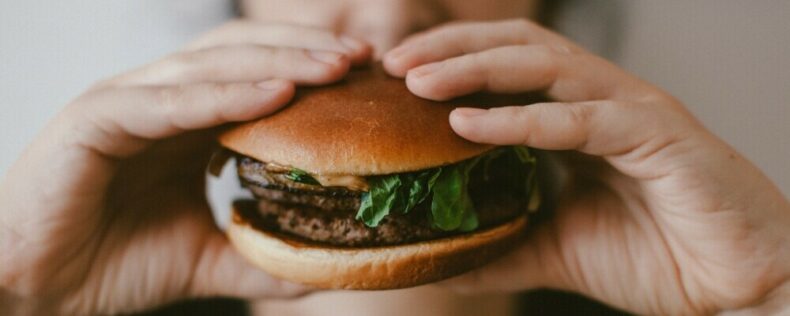When it comes to calories, we commonly discuss them in the context of needing to reduce our calorie intake to achieve weight loss, but that’s not the case for everyone; if you’re trying to put on muscle, you may need to bulk, or intentionally and consistently eat at a calorie surplus, to get the results you’re looking for. However, bulking can be tricky because when not done properly, it can easily lead to a much higher increase in fat compared to muscle. Therefore, I want to share with you three common bulking mistakes to avoid so that you don’t end up doing more harm than good to your body.
1. Eating Lots of Junk Food
One of the worst bulking misconceptions is that if you’re bulking, you get a free pass to eat whatever you want. You can eat all kinds of highly processed junk food and fast food, but under the guise of “bulking”, it’s all OK.
Unfortunately, no matter who you are and how you frame it, constantly eating vast quantities of this kind of food usually leads to the same result of gaining fat very quickly. Even though you need extra calories, it’s easy to take in way more than you need with these calorie-dense foods. Most of that excess then ends up becoming stored as fat.
Furthermore, getting enough calories isn’t the only thing you should focus on. Junk food is very low in nutritional value, which means that although you’re ingesting lots of calories, you’re probably not getting enough protein, vitamins, and other nutrients that the body needs to build muscle and carry out its other day-to-day functions.
2. Overestimating Your Required Calorie Surplus

Even if the food you’re eating is healthy, you can still end up eating too much of it. Another common mistake people make when trying to bulk is thinking they need more calories than they really do. Their understanding is that they must force themselves to constantly eat and be at a huge calorie surplus.
In reality, you don’t need to eat that much more during a bulk than you normally would. For most people, especially beginners, a 350-500 calorie surplus is typically enough. Over the course of an entire day, that’s not much at all; if you just eat a little bit more during each of your meals, you can easily achieve that without too much effort.
Bulking isn’t a linear process in which the more you eat, the faster you build muscle. Like I mentioned in the previous section, eating too many calories is going to cause weight gain in the form of fat, no matter what kind of food you’re eating. If you find bulking to be burdensome because you’re always forcing yourself to eat, you’re likely already eating more than you need to.
3. Not Training Hard Enough
People sometimes forget is that eating is only one part of the bulking process; all that extra energy you’re consuming then needs to be put to use. This means that you of course need to be consistently working out during your bulk, but how you work out also matters.
The additional calories you eat should provide you with more energy to train harder and thus achieve more muscle growth. Therefore, as you bulk, you should also be aiming to increase the total training volume and intensity of your workouts. If you’re not pushing yourself in the gym and constantly trying to progress with your exercises, that pretty much defeats the purpose of a bulk as your body won’t have any need for the extra energy you’re providing it; the result, as you can probably guess by now, is that those extra calories would simply translate to fat.
In the end, food provides your body with the ability to build muscle, but your body will only do so if you give it a reason to.
Should You Start Bulking?

Now that you know some of the biggest mistakes people tend to make when trying to bulk, you can minimize any downsides if you decide that bulking is something you want to do. That being said, one more thing I should mention is that not everyone needs to bulk to gain muscle.
People who already have a decent amount of body fat don’t necessarily need to bulk, as they already have a sufficient amount of stored energy that can be used to build muscle. People who don’t particularly watch their diet or calorie intake also probably don’t need to intentionally bulk, since they’re likely already eating enough calories to fuel muscle growth. Rather, bulking is mainly a tool for those who don’t otherwise have the necessary resources to achieve their desired levels of muscle and strength, such as people who have low levels of body fat or who don’t tend to eat very much.
When you begin lifting weights, you shouldn’t automatically assume that you also need to start bulking. Instead, first see how much progress you can make, and what your body is naturally capable of doing. Only if and when you really begin to slow down and find it difficult to keep building muscle should you then consider implementing a controlled bulk.

